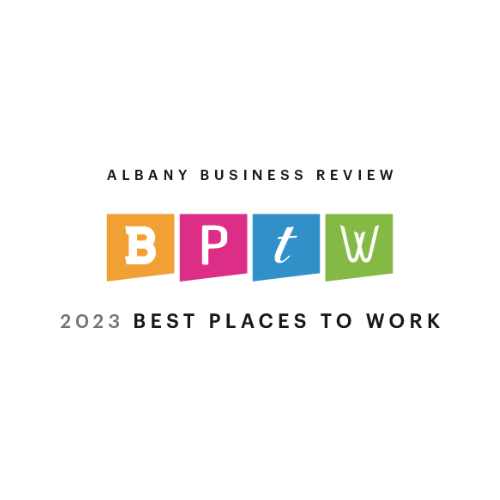On Friday, May 15, the SBA released its PPP Loan Forgiveness Application. The SBA has created definitive rules for certain items that had some uncertainty during the early stages of this program.
Posted on May 15, 2020
Is Outsourcing Right for Your Organization?
As an organization considers the appropriateness of outsourcing, it may be wise to begin that exploration with a basic explanation of what outsourcing is and is not.
Posted on May 7, 2020
How to Document PPP Loan Necessity
On April 23, the U.S. Department of Treasury issued FAQ No. 31 entitled, “Do businesses owned by large companies with adequate sources of liquidity to support the business’ ongoing operations qualify for a Paycheck Protection Program (PPP) loan?”
Posted on April 15, 2020
Payroll Protection Program (PPP) Fact Sheet for Self-Employed or Sole Proprietors
In our previous article “SBA Parameters for the Paychecks Protection Program (PPP)” we outlined the general details of the program. Listed below are answers to questions for those individuals that want to participate in the program and are self-employed or are sole proprietors of a business.
Posted on April 3, 2020
Retirement Plan Relief- The CARES Act
On March 27, 2020, the Coronavirus Aid, Relief and Economic Security Act, otherwise known as the CARES Act, was signed into law. The CARES Act includes provisions which increase flexibility for in-service plan distributions and enhanced loan rules.
Posted on April 1, 2020
"CARES" Stimulus 7(a) Loans- A Portion of These Loans will be Forgiven
In our previous article "CARES Stimulus 7(a) Loans- A Portion of These Loans Will Be Forgiven", we outlined some of the specific criteria that were in the "CARES" Act. Listed below are the specific parameters that have now been set by the SBA.
Posted on March 31, 2020
Federal Tax Credit Available for Employee Retention
On Friday, March 27, 2020, President Trump signed into law the bipartisan Coronavirus Aid, Relief, and Economic Security Act (“CARES Act”). This article addresses certain key employer tax considerations.
Posted on March 31, 2020
Business Tax Considerations to Provide Liquidity
The Coronavirus Aid, Relief, and Economic Security (CARES) Act will provide roughly $2.2 trillion in financial relief to individuals, businesses, not-for-profit organizations, and state and local governments in response to the coronavirus (COVID-19) pandemic.
Posted on March 31, 2020
Information/ Tips For Individuals to Help Get Through COVID-19 Crisis
During these incredibly unusual and disruptive times, the federal government has made numerous changes and updates that will impact your personal financial situation for you and your family.
Posted on March 31, 2020
Deferment of Employer FICA and Medicare Tax Payments
Employers ordinarily have to pay certain employment taxes—known as Federal Insurance Contributions Act (FICA) taxes. FICA taxes help fund both Social Security and Medicare.
Posted on March 31, 2020
Families First Coronavirus Response Act (FFCRA) – FAQ
BST has been following the Families First Coronavirus Response Act (FFCRA) closely. Below are several frequently asked questions that will help you determine your responsibility as an employer.
Posted on March 31, 2020
COVID-19 Paid Leave Tool Kit
In response to the outbreak of novel coronavirus (COVID-19) in New York State, Governor Andrew M. Cuomo has guaranteed workers job protection and financial compensation in the event they, or their minor dependent child (under the age of 18 years old), are subject to an order of mandatory or precautionary quarantine or isolation issued by the state of New York, the Department of Health, local board of health, or any government entity duly authorized to issue such order due to COVID-19.
Posted on March 31, 2020
Business Interruption Insurance and COVID-19
The novel coronavirus (COVID-19) has undoubtedly impacted numerous companies across many industries. While certain companies and industries are better suited to handle the operational impact caused by COVID-19, others are experiencing an unprecedented reduction or cessation of revenues and cash flows.
Posted on March 31, 2020
Economic Injury Disaster Working Capital Loans
An Economic Injury Disaster Loan (EIDL) is a working capital loan intended to assist small businesses through disaster recovery. Monies are to be used to meet ordinary and necessary financial obligations that could not be met as a direct result of the disaster, including fixed debt, payroll, accounts payable, and other bills that could have been paid had the disaster not occurred.
Posted on March 30, 2020
"CARES" Stimulus 7(a) Loans- A Portion of These Loans Will Be Forgiven
Congress passed a $2.2 trillion bill which earmarked $350 billion in funds for Small Business Administration (SBA) loans through the Paycheck Protection Program. The emergency loans are intended to cover payroll, benefits, commissions and similar types of compensation; payments of interest on mortgage obligations or rent; and utilities for qualifying small businesses.
Posted on March 30, 2020
Fraud in an Economic Downturn
During an economic downturn, financial pressures and opportunities can lead to an increase in fraudulent activity. This can take shape in many forms, including employee embezzlement, fraud by unrelated third parties, cyberattacks, fraud by vendors, financial statement fraud and corruption.

